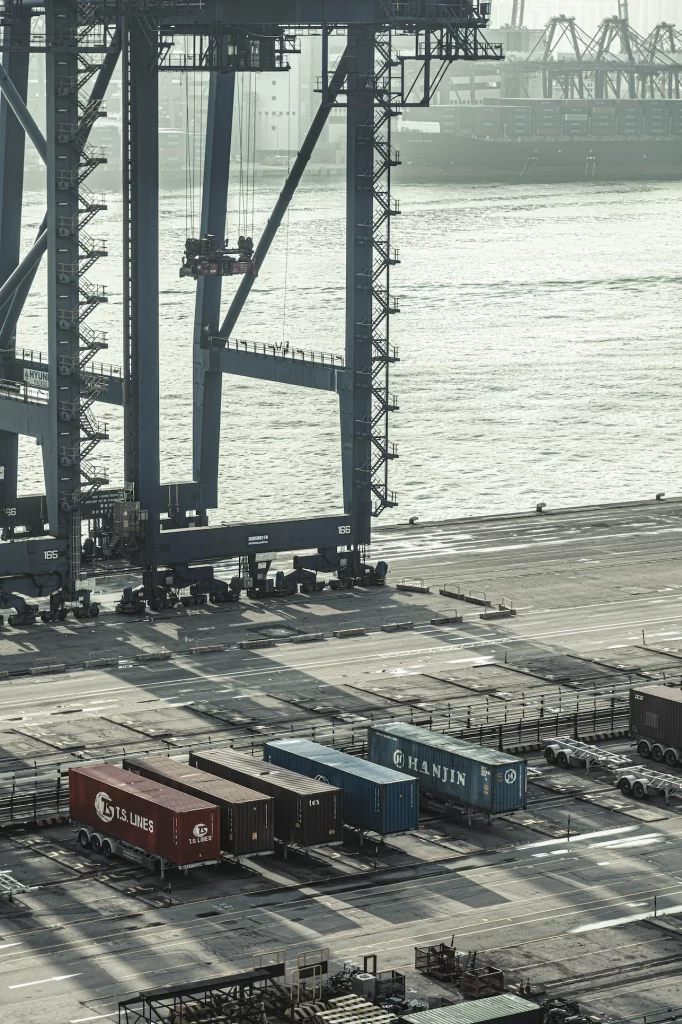Convention and Statute Serving Landlocked Developing States: the Case of Ethiopia
By Dagnachew Tesfaye, Managing Partner at DMLF

Introduction
Losing access to the sea is generally a great loss to a nation, politically, militarily, and economically. The independence of Eritrea caused Ethiopia to become landlocked in 1991. The Ethiopian navy operated from foreign ports for several more years. Ethiopia is a neighbor to five or six coastal countries namely Djibouti, Eritrea, Kenya, Somalia, Somaliland and Sudan. Among the landlocked countries of the world, Ethiopia is the largest populous nation to be a landlocked country.
The international community has attempted to come up with few rules about the rights of land-locked states. The Barcelona Convention and Statute on Freedom of Transit (1921), the Geneva Convention and Statute on the International Regime of Maritime Ports (1923), the Geneva Conventions on the Law of the Sea (1958), the New York Convention on the Transit Trade of Land-locked States (1965) and the United Nations Convention on the Law of the Sea (UNCLOS, 1982).
The UNCLOS substituted the four Geneva Conventions. UNCLOS provides land-locked states with the right of access to and from the seas and freedom of transit. However, UNCLOS makes such rights subject to the agreements to be made by land-locked and coastal states. This, in turn, relies on the prevailing relations between the concerned states. If the land-locked and transit states are not in a good relation, the transit states may be unhappy to negotiate such an agreement and thereby put hurdles on the land-locked states’ free transit. The rights of land-locked states rely on the political will and commitment of transit states. The denial of free transit, affects the rights of land-locked states on the different maritime regimes. Land-locked states have no absolute right of access to and from the seas. Therefore though there are international conventions on the matter, negotiating bilateral and multilateral agreements with the transit states has a crucial and irreplaceable role. Being a land-locked developing country Ethiopia has been facing geographical, political, trade, transit, and other challenges. Ethiopia depends on Djibouti for its access to and from the sea. From the international to continental and bilateral agreements on access to the sea affecting Ethiopia shall be the focus of the article. The article is intended to give brief knowledge on the existing laws and programme of actions for land-locked states like Ethiopia.
1958 Convention on the High Seas
The Convention on the High Seas is a global treaty which codifies the rules of international law relating to the high seas, otherwise known as international waters. Article 2 of the 1958 Convention on the High Seas makes clear that the high sea is open to all nations, and both coastal and non coastal states enjoy freedom of navigation. Article 4 of the Convention clearly provides that : ‘Every State, whether coastal or not, has the right to sail ships under its flag on the high sea.’ Furthermore, Article 14(1) of the Convention on the territorial Sea and the Contiguous Zone stipulates that ships of all States, whether coastal or not, shall enjoy the right of innocent passage through the territorial sea. The convention on the High Seas was superseded by the 1982 UNCLOS III, which introduced several new concepts to the law of maritime boundaries including Exclusive Economic Zone. Except Kenya, none of the neighboring coastal states of Ethiopia are signatories of the convention including Ethiopia.
UN Convention on Transit Trade of Land-locked States, 1965
The1965 New York Convention has been noted as the first international agreement to recognize the special disadvantaged position of land-locked states. The convention has essentially been superseded by the UNCLOS III, which contains similar provisions for transit arrangements to be made between coastal and land-locked states. Nevertheless, the Convention for the first time gave recognition that land-locked states enjoy a legal right of free transit. Article 2 stipulates that freedom of transit is to be granted to traffic in transit and means of transport on routes in use mutually accepted for transit. No discrimination is to be exercised on the basis of the place of origin, departure, entry, exit or destination or on any circumstances relating to the ownership of the goods or the ownership, place of registration of flag of vessels, land vehicles or other means of transport used. A notable weakness of the New York Convention is its lack of universal ratification. It currently has 43 signatories and unfortunately to date Ethiopia is not a party to the Convention. Except Sudan, being a signatory, none of the neighboring states of Ethiopia are parties to the convention. The 1965 New York Convention was the foundation for negotiations at UNCLOS III on the question of rights of transit for land-locked states.
UNCLOS III
The United Nations Convention on the Law of the Sea (UNCLOS III) was adopted with one chapter dedicated to the rights and freedoms of landlocked states. Although the provisions are brief, one can consider them as an achievement as some measure of success. The adoption of Article 69 and Part X (Articles 124 – 132) UNCLOS depicted some recognition of what landlocked states had struggled to achieve. There are some supplementary Articles throughout UNCLOS which highlight further recognition of landlocked states’ rights in the seas carried over from previous treaties and conferences.
Landlocked states strive to gain access to global resources in line with the minimum standards as set out by the United Nations Convention on the Law of the Sea (UNCLOS III).It is a known fact that securing a cost effective transit arrangement with minimum rights or freedoms of transit and access is highly dependent on diplomatic relations between the landlocked state and its transit or coastal neighbor. UNCLOS emphasizes cooperation at regional, sub-regional or bilateral levels. The Convention does not stipulate penalties where there lacks any cooperation arrangements in place between landlocked states and their coastal neighbors. Even to the extent there is an arrangement in place UNCLOS does not insist that the arrangement be equitable. Landlocked states are vulnerable to any disturbance their transit neighbors may experience. Landlocked states rely on political stability and the will of their coastal neighbors. Landlocked states remain dependent on their transit neighbors’ infrastructure and administrative processes. All these dependencies which might contribute to delay in transit for landlocked states.
These rights and freedoms of landlocked states under UNCLOS are not absolute nor self-executing. The ability of landlocked states to exercise these rights remains at the will and discretion of their coastal and transit neighbors. Landlocked states are required to negotiate bilateral and multilateral agreements in this regard and take what they can get, if anything at all. UNCLOS III became the new constitution of the seas and oceans, and yet UNCLOS upheld coastal states’ superiority to landlocked states. Ethiopia is a signatory to UNCLOS III. Djibouti, Kenya, Somalia and Sudan are also signed and ratified or acceded to the Convention.
Almaty Declaration and Plan of Action
In 2003, a conference was held in Almaty, Kazakhstan to adopt a programme of action to address the unique challenges that LLDCs face. The United Nations Office of the High Representative for the Least Developed Countries, Landlocked Developing Countries and the Small Island Developing States adopted the Almaty Programme. The Almaty Declaration and Plan of Action was adopted in 2003. The main purpose being to minimize the effect of dependency of landlocked states on their transit and coastal neighbors.Landlocked states and their transit neighbors seem to have found middle ground through Almaty Programme.
Almaty Programme of Action was adopted as an initiative to address the special needs and problems of landlocked states. This was attempted to be done by bringing together all relevant stakeholders that could assist in overcoming specific and peculiar challenges that put obstacles to international trade for landlocked states. General Assembly Resolution 66/214 recognized the Almaty Programme of Action as a fundamental framework for true relationship between landlocked and transit developing countries and their development partners at all levels including national and sub-regional levels. The Resolution further recognizes, among others, that international trade and trade facilitation is one of the priorities of the Almaty Declaration and Program of Action as a means to guarantee that landlocked developing countries get a more swift flow of goods and services through trans-border trade.
The Vienna Programme of Action
The Vienna Programme of Action for Landlocked Developing Countries(LLDCs) for the Decade 2014–2024 is focused upon addressing the challenges faced by LLDCs. The Vienna Programme of Action aims to contribute to the eradication of poverty stemming from countries’ landlockedness. The aim is to implement specific actions related to six priority areas: transit policy; infrastructure development; trade and trade facilitation; regional integration and cooperation; structural economic transformation; and means of implementation. The plan advises for additional investment in infrastructure, including roads, railways, and ports, to improve connectivity and reduce transportation costs. The plan also focuses on the need for greater trade liberalization and facilitation, including the removal of trade barriers and the promotion of trade diversification. The VPoA addresses the unique challenges faced by LLDCs and provides a comprehensive plan to address those challenges. The plan recognizes the importance of partnerships and cooperation between LLDCs, transit countries, and development partners, and the plan calls for increased financial and technical assistance to help LLDCs implement the plan.
The 2050 Africa’s Integrated Maritime Strategy (AIMS)
The 2050 Africa’s Integrated Maritime Strategy was adopted in January 2014. The Strategy focuses on ensuring that the African continent is a key player in maritime affairs. The Strategy recognizes the need for ratification and domestication of all binding instruments. The Strategy promotes intra-Africa trade, with wealth creation for all of Africa as the ultimate goal, through increased development and integration. The Strategy provides a specific mention of the need to ‘protect’ the right of access to the sea and freedom of transit of goods of landlocked states. The Strategy, nonetheless, refers to landlocked states as “landly-connected” states. The strategy anticipates creation of a Combined Exclusive Maritime Zone of Africa. The Strategy calls for the need for interpretation consistent with existing instruments such as the UN Convention on Transit Trade for landlocked States (New York Convention) and the Convention on the Facilitation of International Maritime Transport which have specific provisions on equal treatment of landlocked states. The Strategy is primarily focused towards promoting intra-Africa maritime trade. It calls for improved transit routes to ensure the smooth flow of trade within Africa. The Strategy does not have provisions dedicated solely to addressing the plight of transit for landlocked states but rather calls for an assessment of bottlenecks on transit of goods generally. Without negotiating and entering into effective, mutually beneficial bilateral, sub-regional or regional agreements, the rights and duties of Africa’s ‘landly-connected’ states in relation to the maritime domain would have very limited practical value.
Africa Continent Free Trade Area(AfCFTA)
Among the Agenda 2063 flagship projects, AfCFTA is one of the significant ones. AfCFTA aims for increased trade agreements, geared towards intra-africa trade by eliminating barriers. African Continental Free Trade Area (AfCFTA) as at August 2023, 47 of the 54 signatories (87%) have deposited their instruments of AfCFTA . Ethiopia and Djibouti have ratified AfCFTA whereas Eritrea, Somalia and Sudan’s membership is pending. AfCFTA contributes to the peculiar needs faced by Africa’s Landlocked Developing Countries (LLDCs) and Small Island Developing States (SIDS). AfCFTA promises to contribute towards addressing some of these challenges.15 of the 16 African LLDCs have ratified the AfCFTA, as a symbol of their readiness to leverage the opportunities offered by the AfCFTA. Discussions are taking place in leveraging the AfCFTA towards addressing the peculiar trade and development challenges of Africa’s LLDCs and SIDS.
Agreement Between Ethiopia and Djibouti
Political will and mutual benefits are two key drivers of a successful agreement between a landlocked and a transit state. As a result, Ethiopia and Djibouti signed an agreement on port utilization and transit of goods towards Ethiopia in 2002. Relying on the UNCLOS principles, the agreement stresses the success of the Djibouti–Addis Ababa transport corridor and includes various terms and modalities of transit transport. Moreover, the agreement adds an institutional planning framework with a joint expert committee, which meets every three months, and a ministerial committee, which meets biannually. Ethiopia and Djibouti recognized the mutual benefits of the agreement. Ethiopia’s key interest is safe and competitive access to the sea, and for Djibouti the traffic in transit is a source of income, contributing 70% of the port’s income.
Conclusion
While landlocked states have a general right in terms of UNCLOS to access the sea and its living resources, the practical application thereof is left to bilateral agreements to be entered into between the landlocked state and the transit states involved. In accordance with the relevant UNCLOS articles, states shall enter into these agreements to determine the ‘how to’ of these rights. Though there are some considerations provided by UNCLOS, there is no guarantee that the rights of landlocked states are protected. The actual terms to be included in the agreements are left up to the landlocked states to deliberate with their counterparts during the negotiations. In practice, therefore, the implementation of UNCLOS provisions related to the rights of landlocked states still relies to a significant degree on political will and existing favorable relations between the relevant states. Ethiopia’s need to have sea port access also depends on bilateral agreements entered with its coastal neighbors of Eritrea, Somalia, Somaliland, Kenya, or Sudan based upon international principles and plan of actions.
For inquiries, you may contact us at info@dmethiolawyers.com
-
Understanding the Federal Courts Costs and Damages Guideline No. 2/2017: A Comprehensive Overview
By DMLF Team The Federal Supreme Court of Ethiopia enacted the Federal Courts Costs and Damages Guideline No. 2/2017, which governs the determination of costs and damages across all federal courts and regional courts handling federal cases. This guideline emphasizes that decisions related to costs and damages should be integrated within the main case file…
-
New Fee Structure for Services Provided by the Ethiopian Immigration and Nationality Service
By Sinishaw Hailu, Associate at DMLF The Ethiopian Council of Ministers has recently enacted a significant update with the introduction of Regulation No. 550/2024 here in after the regulation, which establishes new fee rates for services provided by the Immigration and Nationality Service. This regulation repealed the previous Regulation No. 38/2022 and introduces a new…
-
Ethiopia’s New Health Service Administration Proclamation: A Step towards Modern Healthcare
By DMLF Team In a significant move for Ethiopia’s healthcare landscape, The Ethiopian House of People’s Representatives has approved the Health Service Administration Proclamation No. 1362/2017. This new legislation aims to enhance the quality and accessibility of health services. The new law introduces a host of progressive measures that promise to modernize healthcare and better…
-
New Proclamation for Special Economic Zones in Ethiopia
By DMLF Team In a pivotal move, the Ethiopian Parliament has approved Proclamation No. 1322/2024, which establishes guidelines for Special Economic Zones (SEZs). This legislation aims to enhance investment activities through a robust framework of support, including policies that streamline trade, bolster infrastructure, and improve amenities for investors. Within these SEZs, a variety of specialized…
-
Key Decisions of the House of Federation Regarding Property Rights and Marriage in Ethiopia
By DMLF Team The House of Federation in Ethiopia plays a pivotal role in adjudicating matters that significantly impact the CONSTITUTIONAL rights of citizens, particularly concerning property rights and marriage. Below is an overview of critical decisions rendered by the House, which elucidate the legal framework governing these issue. Immovable Property as Common Property In…
-
General Overview about Joint Venture in Ethiopia
By DMLF Team The Ethiopia Commercial Code Proclamation Number 1243/2021 defines a joint venture as a business organization established by an agreement among two or more persons. Joint venture has no legal personality and its existence is unknown to third parties. Registration formalities required of other business organizations do not apply to a joint venture. …




